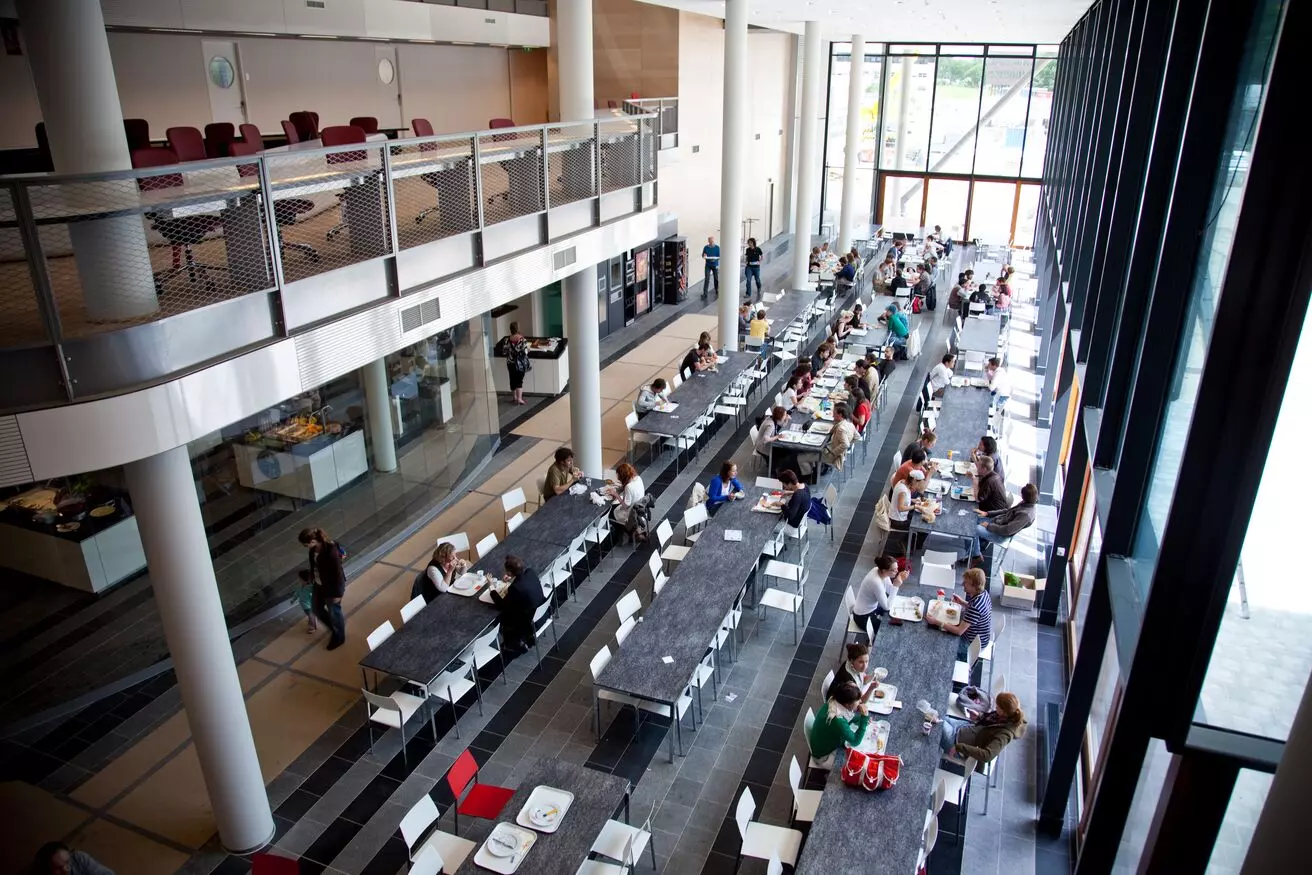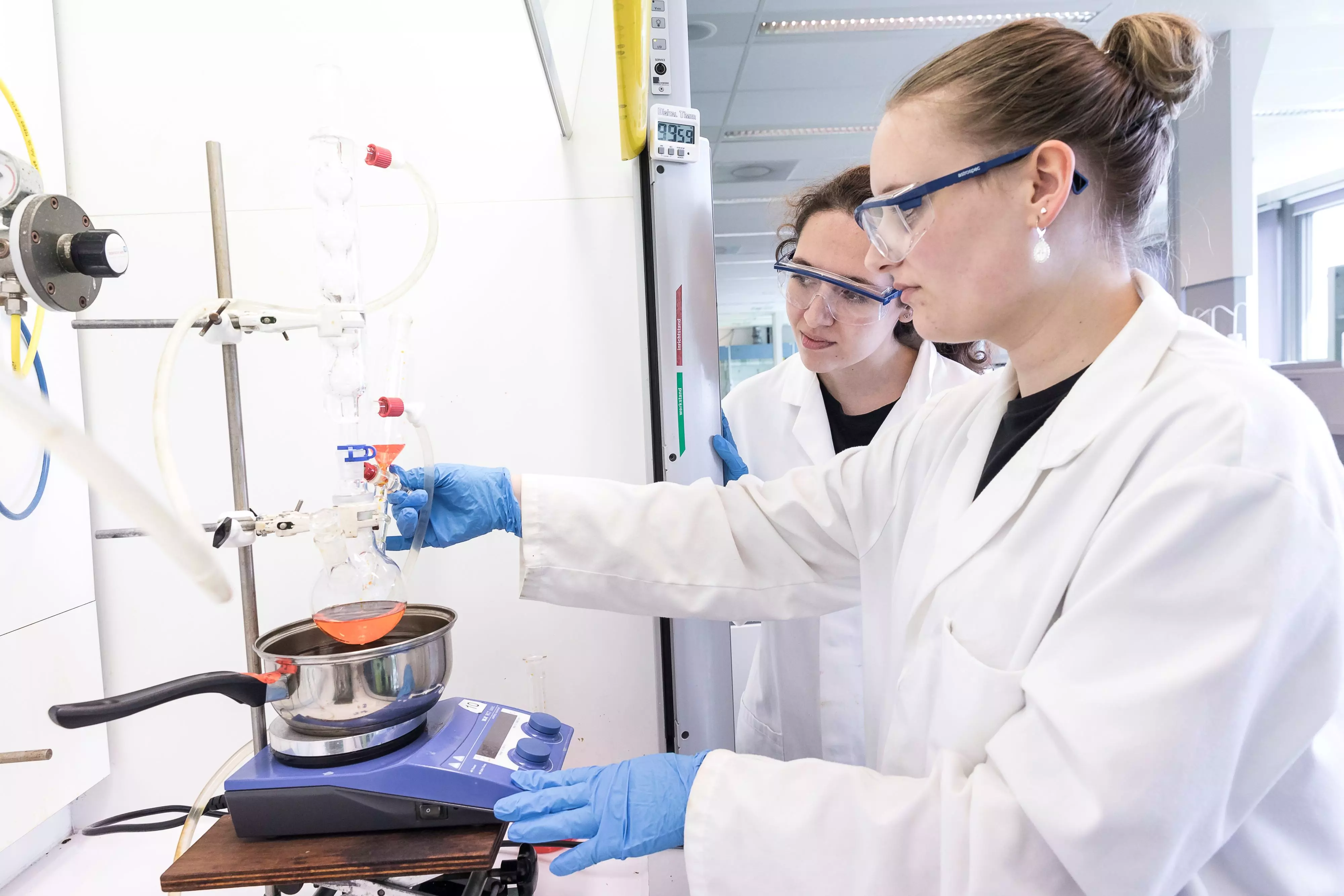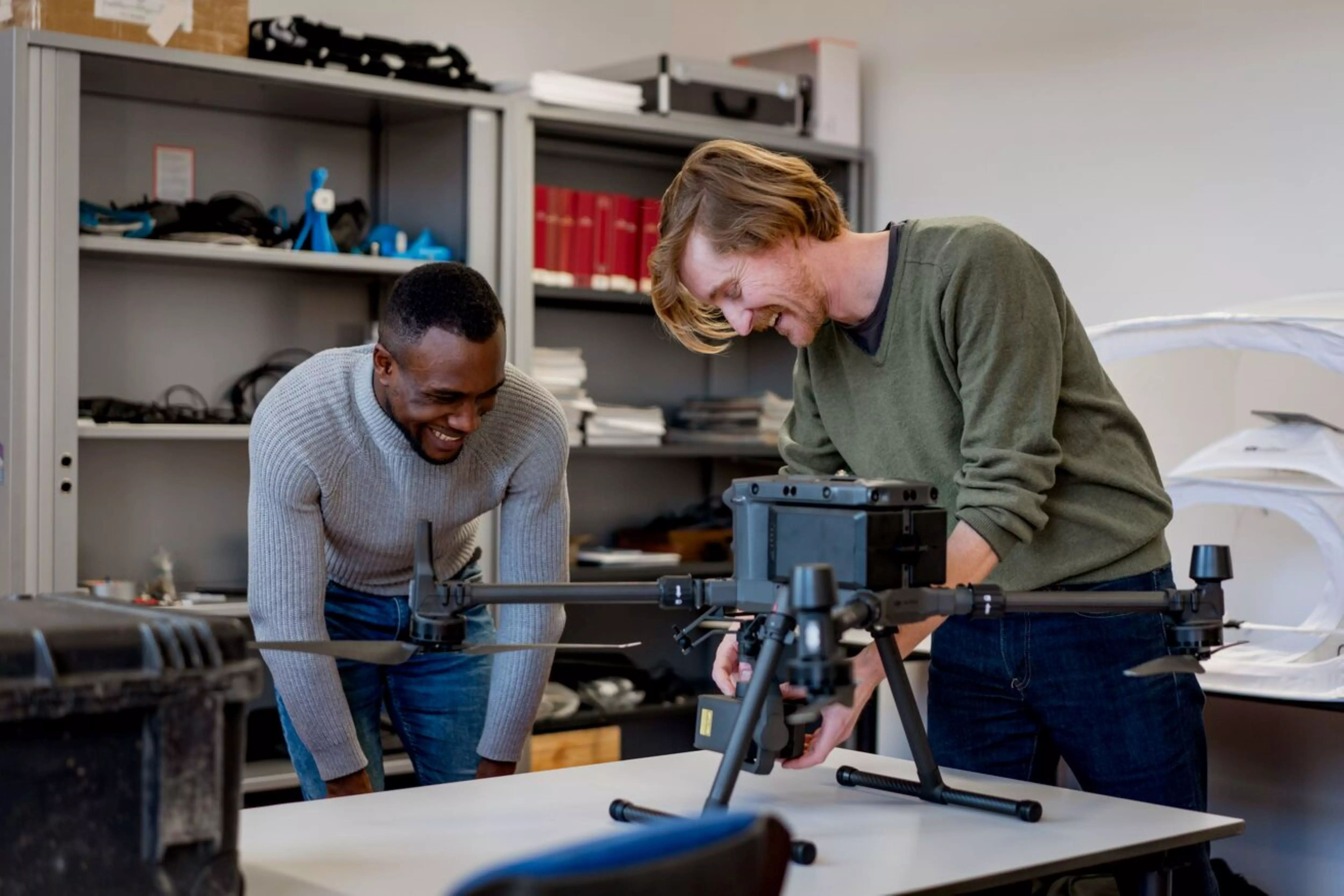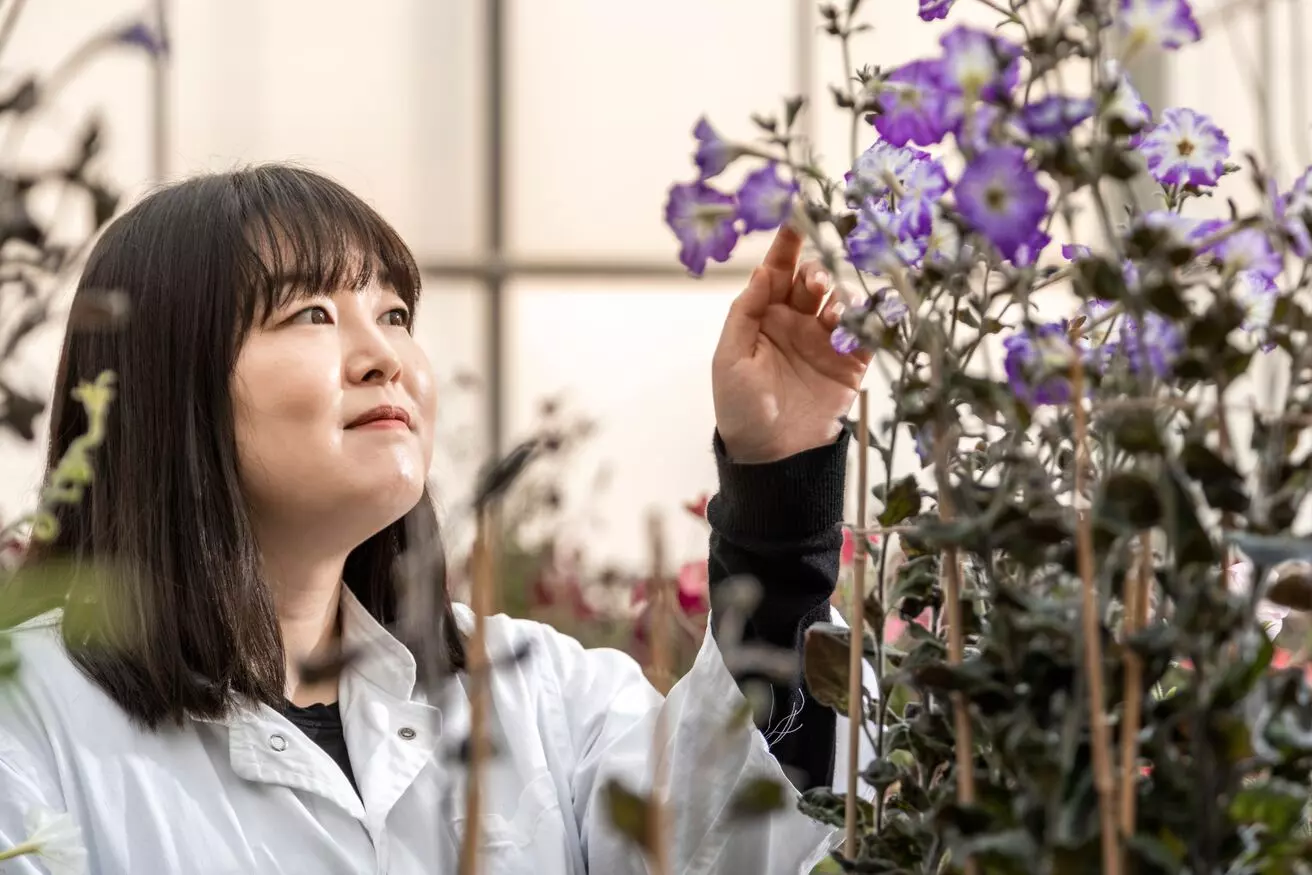
Postdoctoral Researcher, Art History with Experience in Creating Historical-informed Reconstructions
- Faculty of Humanities
- 13598
- PhD
- €3.345 - €5.278
- Minimum 9.5 hours
- Closes on30-11-2024
Are you looking for a challenging position in a dynamic setting? The Amsterdam School for Heritage, Memory and Material Culture (AHM) currently has a vacant Postdoc researcher position as part of the NWO funded project "Black Magic - (Re)discovering the development and changes of black woollens quality standards in the 18th-century Leiden's staalmeesters sample books", led by main researchers Dr. Ana F. A. Serrano and prof. Maarten R. van Bommel. AHM is one of the five Research Schools within the Amsterdam Institute for Humanities Research (AIHR). The position is offered by Conservation and Restoration of Cultural Heritage which belong to the department of Arts and Culture. If you are excited about doing this kind of research with a team of smart and friendly colleagues, then you may want to join us!
Are you looking for a challenging position in a dynamic setting? The Amsterdam School for Heritage, Memory and Material Culture (AHM) currently has a vacant Postdoc researcher position as part of the NWO funded project "Black Magic - (Re)discovering the development and changes of black woollens quality standards in the 18th-century Leiden's staalmeesters sample books", led by main researchers Dr. Ana F. A. Serrano and prof. Maarten R. van Bommel. AHM is one of the five Research Schools within the Amsterdam Institute for Humanities Research (AIHR). The position is offered by Conservation and Restoration of Cultural Heritage which belong to the department of Arts and Culture. If you are excited about doing this kind of research with a team of smart and friendly colleagues, then you may want to join us!
Working at the UvA
Postdoctoral researcher, art history with experience in creating historical-informed reconstructions
Within the Black Magic project, we are looking for a postdoctoral researcher with a background in (technical) art history and ample experience in studying early modern Dutch historical source and historical reconstructions research.
Museum De Lakenhal holds a unique collection of sample books (1690-1791), with hundreds of black wool samples produced in Leiden. The city followed strict regulations and used several grades to control the quality of its black woollens, which were often meant for export. Yet, the samples for each quality grade vary considerably, suggesting that this control was not as standardised as initially assumed. By studying these books and their wool samples, this project aims to (re-)discover the development and changes of 18th-century Leiden quality-control standards, and establish the city's role in the globalisation of trade in textiles and textile materials. The research will be supported by a PhD candidate who will focus on the technical analysis of a selection of the woollen samples, and create reconstructions based on historical recipes. The research will be carried out in collaboration with Museum de Lakenhal and the Cultural Heritage Agency of the Netherlands, within the framework of the Netherlands Institute for Conservation, Arts and Science.

Working at the UvA
Postdoctoral researcher, art history with experience in creating historical-informed reconstructions
Within the Black Magic project, we are looking for a postdoctoral researcher with a background in (technical) art history and ample experience in studying early modern Dutch historical source and historical reconstructions research.
Museum De Lakenhal holds a unique collection of sample books (1690-1791), with hundreds of black wool samples produced in Leiden. The city followed strict regulations and used several grades to control the quality of its black woollens, which were often meant for export. Yet, the samples for each quality grade vary considerably, suggesting that this control was not as standardised as initially assumed. By studying these books and their wool samples, this project aims to (re-)discover the development and changes of 18th-century Leiden quality-control standards, and establish the city's role in the globalisation of trade in textiles and textile materials. The research will be supported by a PhD candidate who will focus on the technical analysis of a selection of the woollen samples, and create reconstructions based on historical recipes. The research will be carried out in collaboration with Museum de Lakenhal and the Cultural Heritage Agency of the Netherlands, within the framework of the Netherlands Institute for Conservation, Arts and Science.
All about this vacancy
This is what you will be doing
As a postdoctoral researcher you will focus on historical and archival research to obtain a systematic survey of colour quality grades, quality control/standardization practices, and trade in Dutch textiles and textile materials in both primary sources (the sample books, inspection sheets, guild regulations, dye recipes, correspondences, and legal documents relevant to Leiden black broadcloth) and secondary sources. You will use applicable software to transcribe and interpret the content of the sample books. This will form a base for the historically informed reconstructions of black-dyed wool and quality control practices you will develop in close collaboration with a PhD candidate who will also be employed for this project.
This is what we ask of you
Your tasks and responsibilities:
• carry out archival research focussing on Dutch historical sources
• transcribe a selection of the Lakenhal sample books and dye recipes
• collaborate with the PhD candidate to develop historically-informed reconstructions
• presenting intermediate research results at workshops and conferences and publishing at least two peer reviewed articles;
• participating in meetings of the project research group and developing a shared database;
• co-organising knowledge dissemination activities, including workshops and an expert meeting.
Your profile
We are looking for an experienced researcher with a strong background in (technical) art history, with extensive experience in the investigation of early modern Dutch written sources and material culture. You can work independently but enjoy close collaboration with an interdisciplinary research team of analytical chemists, conservators and art historians.
Candidates need to have the following qualifications:
• a PhD in Art History or Technical Art History;
• excellent research skills demonstrated by a track record of publishing in high-ranking journals and/or with leading presses or a demonstrable capacity to develop such a record;
• a strong cooperative attitude and willingness to engage in collaborative research;
• enthusiasm for communicating academic research to non-academic audiences;
• good command of both Dutch and English.
Understanding of late 17th- and 18th-century hand-writing and transcription experience are key to studying the Dutch primary sources in this project. The candidate should be specialised in close reading and interpretation of early modern written sources and material culture, and should have a strong expertise in the palaeographic study of primary art technological sources using advanced digital humanities tools, especially early modern recipes related to black dyeing, and in collaborative historical dye reconstructions. This should be clearly expressed in your application.
All about this vacancy
This is what you will be doing
As a postdoctoral researcher you will focus on historical and archival research to obtain a systematic survey of colour quality grades, quality control/standardization practices, and trade in Dutch textiles and textile materials in both primary sources (the sample books, inspection sheets, guild regulations, dye recipes, correspondences, and legal documents relevant to Leiden black broadcloth) and secondary sources. You will use applicable software to transcribe and interpret the content of the sample books. This will form a base for the historically informed reconstructions of black-dyed wool and quality control practices you will develop in close collaboration with a PhD candidate who will also be employed for this project.
This is what we ask of you
Your tasks and responsibilities:
• carry out archival research focussing on Dutch historical sources
• transcribe a selection of the Lakenhal sample books and dye recipes
• collaborate with the PhD candidate to develop historically-informed reconstructions
• presenting intermediate research results at workshops and conferences and publishing at least two peer reviewed articles;
• participating in meetings of the project research group and developing a shared database;
• co-organising knowledge dissemination activities, including workshops and an expert meeting.
Your profile
We are looking for an experienced researcher with a strong background in (technical) art history, with extensive experience in the investigation of early modern Dutch written sources and material culture. You can work independently but enjoy close collaboration with an interdisciplinary research team of analytical chemists, conservators and art historians.
Candidates need to have the following qualifications:
• a PhD in Art History or Technical Art History;
• excellent research skills demonstrated by a track record of publishing in high-ranking journals and/or with leading presses or a demonstrable capacity to develop such a record;
• a strong cooperative attitude and willingness to engage in collaborative research;
• enthusiasm for communicating academic research to non-academic audiences;
• good command of both Dutch and English.
Understanding of late 17th- and 18th-century hand-writing and transcription experience are key to studying the Dutch primary sources in this project. The candidate should be specialised in close reading and interpretation of early modern written sources and material culture, and should have a strong expertise in the palaeographic study of primary art technological sources using advanced digital humanities tools, especially early modern recipes related to black dyeing, and in collaborative historical dye reconstructions. This should be clearly expressed in your application.
Your place at the UvA
This is what we offer you
The Postdoc researcher will be appointed at the Arts and Culture department of the Faculty of Humanities and will conduct the research in AHM. The employment will be for one year. Contingent on a positive performance evaluation the contract will be extended with 3 years. The employment contract is for 9.5 hours a week. The preferred starting date is 01 March 2024. Your salary, depending on relevant experience on commencement of the employment contract, ranges between €3.378 to €5.331 gross per month on the basis of a full working week of 38 hours. This sum does not include the 8% holiday allowance and the 8,3% year-end allowance. Favourable tax agreements may apply to applicants moving from abroad.
What else do we offer?
- excellent possibilities for further professional development and education;
- an enthusiastic and professional academic team;
- an inspiring academic and international work environment in the heart of Amsterdam;
- the opportunity to collaborate with leading researchers at research institutes that - partly as a result of their interdisciplinary approach - are world renowned.
Organisational unit
Your place at the UvA
This is where you will be working
This is what we offer you
The Postdoc researcher will be appointed at the Arts and Culture department of the Faculty of Humanities and will conduct the research in AHM. The employment will be for one year. Contingent on a positive performance evaluation the contract will be extended with 3 years. The employment contract is for 9.5 hours a week. The preferred starting date is 01 March 2024. Your salary, depending on relevant experience on commencement of the employment contract, ranges between €3.378 to €5.331 gross per month on the basis of a full working week of 38 hours. This sum does not include the 8% holiday allowance and the 8,3% year-end allowance. Favourable tax agreements may apply to applicants moving from abroad.
What else do we offer?
- excellent possibilities for further professional development and education;
- an enthusiastic and professional academic team;
- an inspiring academic and international work environment in the heart of Amsterdam;
- the opportunity to collaborate with leading researchers at research institutes that - partly as a result of their interdisciplinary approach - are world renowned.
Organisational unit
Important to know
Your application & contact
If you feel the profile fits you, and you are interested in the job, we look forward to receiving your application. You can apply online via the link
below. We will accept applications until 30 November 2024.
Your application should include the following information:
• a letter of motivation (max. 1 A4)
• a full academic CV, listing at least full address and contact details, previous education, relevant employment, conference presentations and publications, grants/honours (if applicable), language proficiency;
• a research proposal of 800-1000 words, showing how you would approach the project;
• The names and email addresses of two references who may be approached by the selection committee.
Please submit the required information in 1 pdf by uploading in the required field 'CV'. The first round of interviews will be held on 18 December.
Diversity, Equity & Inclusion
Important to know
Your application & contact
If you feel the profile fits you, and you are interested in the job, we look forward to receiving your application. You can apply online via the link
below. We will accept applications until 30 November 2024.
Your application should include the following information:
• a letter of motivation (max. 1 A4)
• a full academic CV, listing at least full address and contact details, previous education, relevant employment, conference presentations and publications, grants/honours (if applicable), language proficiency;
• a research proposal of 800-1000 words, showing how you would approach the project;
• The names and email addresses of two references who may be approached by the selection committee.
Please submit the required information in 1 pdf by uploading in the required field 'CV'. The first round of interviews will be held on 18 December.
Other interesting vacancies for you

Postdoc Researcher Position as part of the EU-funded Project vera.ai
- Faculty of Humanities
- €3.345 - €5.278
- Closes on30-11-2024
- University
- Minimum 15.2 hours

Postdoc Position on the Computational Analysis of Cities and Digital Platforms
- Faculty of Social and Behavioural Sciences
- €4.492 - €6.148
- Closes on15-01-2025
- PhD
- 19 - 31 hours

Postdoc in Host-Microbiome-Nutrient Interaction in Human Gut
- Faculty of Science
- €3.345 - €5.278
- Closes on30-11-2024
- PhD
- 38 hours
Other interesting vacancies for you

Postdoc Researcher Position as part of the EU-funded Project vera.ai
- Faculty of Humanities
- €3.345 - €5.278
- Closes on30-11-2024
- University
- Minimum 15.2 hours

Postdoc Position on the Computational Analysis of Cities and Digital Platforms
- Faculty of Social and Behavioural Sciences
- €4.492 - €6.148
- Closes on15-01-2025
- PhD
- 19 - 31 hours

Postdoc in Host-Microbiome-Nutrient Interaction in Human Gut
- Faculty of Science
- €3.345 - €5.278
- Closes on30-11-2024
- PhD
- 38 hours

Don't miss out on your dream job!

Don't miss out on your dream job!
This website uses cookies
We, and third parties, use cookies on our website. We use cookies to ensure that our website functions properly, to store your preferences, to gain insight into visitor behavior, but also for marketing and social media purposes (showing personalized advertisements). By clicking 'Accept', you agree to the use of all cookies. In our Cookie Statement. you can read more about the cookies we use and save or change your preferences. By clicking 'Refuse' you only agree to the use of functional cookies.
